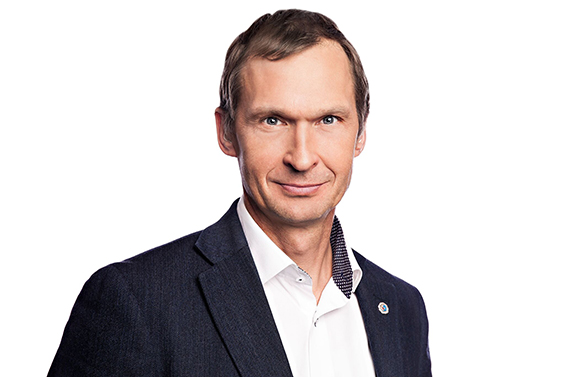
AI Profiileerimine: Jüri Jaanson
Päevakorrapunkte: 47
1050/1050 profiling (100.0%)
Sõnavõtte kokku: 90
Analüüsi periood: 2024-09-09 - 2025-09-25
Poliitiline positsioon
Poliitiline positsioon on valdavalt pragmaatiline, poliitika- ja tulemuspõhine, rõhutades süsteemset efektiivsust, bürokraatia vähendamist (eriti energeetikas ja ehituses) ning majanduskasvu olulisust sotsiaalsete ja julgeolekuprobleemide lahendamisel. Sotsiaalpoliitiliselt toetab poliitik progressiivseid reforme, nagu ligipääsetavuse ja valimisõiguse laiendamine ning haavatavate rühmade (puudega lapsed) toetamine, sidudes sotsiaalküsimused rahvatervise ja riikliku hädaolukorraga. Lisaks sisepoliitilisele fookusele on tugev ja järjepidev rõhuasetus riigi julgeolekule, eriti Läänemere mereohutusele ja varilaevastike takistamisele. Läbivalt rõhutatakse õigusloome kvaliteeti, menetluslikku korrektsust ning vajadust pidada poliitilist debatti lugupidaval viisil.
Teemade ekspertiis
Poliitiku ekspertiis on erakordselt sügav ja tehniline, keskendudes järjepidevalt keskkonna- ja energiapoliitika (sh veeseadus, puurkaevud, tuulikute akustika) ning õigusloome ja parlamendi menetlusreeglite detailidele. Ta demonstreerib autoriteeti, kasutades spetsiifilist terminoloogiat (nt ODEX-tehnoloogia, volitusnorm, hoolsuskohustus) ning viidates konkreetsetele regulatiivsetele piirmääradele ja teaduslikele uuringutele. Lisaks on tal põhjalikud teadmised sotsiaalvaldkonna regulatsioonidest, ligipääsetavusest ning spordipoliitika rahastamisest ja rahvusvahelistest regulatsioonidest, rõhutades alati protseduuriliste õiguste ja õiguskindluse tagamist.
Retoorriline stiil
Stiil on läbivalt formaalne, lugupidav ja tugevalt analüütiline, keskendudes menetluslikule täpsusele ja õiguslikule selgusele, mida rõhutavad korduvad pöördumised "Austatud minister/juhataja". Kõneleja eelistab valdavalt loogilist ja faktipõhist argumentatsiooni, tuginedes seadustele, statistikatele ja teaduslikele definitsioonidele, vältides enamasti emotsionaalseid üleskutseid. Domineeriv toon on küsitlev ja korrigeeriv, nõudes selgitusi ja kontrollides rakendamise teostatavust, kuid kriitika püsib argumenteeritud ja suunatud protseduurilistele või sisulistele ebakõladele, mitte isikutele. Erandlikult muutub toon kirglikumaks vaid siis, kui kaitstakse põhimõttelisi väärtusi (nt kohtusüsteemi sõltumatus või puuetega inimeste väärikus) või väljendatakse pettumust oluliste valdkondade alarahastamise osas.
Tegevusmustrid
Poliitiku tegevusmuster on erakordselt intensiivne ja järjepidev, keskendudes peaaegu täielikult Riigikogu täiskogu istungitele, kus ta osaleb regulaarselt mitmel päeval kuus, sageli järjestikustel päevadel. Tema roll parlamendis on kahetine: ta on aktiivne ja detailne küsitleja, esitades ministritele ja ettekandjatele mitu küsimust ühe istungi jooksul, ning samal ajal täidab ta olulist seadusandlikku rolli juhtivkomisjoni ettekandjana. Läbivaks jooneks on ka tähelepanu protseduurilistele ja tehnilistele küsimustele, mis viitab põhjalikule menetluse tundmisele ja aktiivsele osalemisele debati juhtimises. Väljaspool parlamenti on tegevus piiratud, kuid hõlmab konkreetseid kohapealseid külastusi seoses komisjoni tööga (nt Keskkonnakomisjoni tegevus).
Opositsiooni hoiak
Poliitiku vastasseis on valdavalt protseduuriline ja süsteemipõhine, keskendudes Riigikogu kodu- ja töökorra seaduse rikkumistele, istungi juhataja tegevusele ning bürokraatlikele takistustele (nt Keskkonnaamet). Poliitilistest vastastest on kõige järjepidevamalt kritiseeritud Isamaa Erakonda menetluse takistamise ja ebaadekvaatsete argumentide eest, samas kui Keskerakonnale heidetakse ette sisulise arusaama puudumist ja halvustavat keelekasutust. Kriitika on reeglina suunatud poliitika sisu, teadusliku aluse ja rakenduslogistika vastu, vältides isiklikke rünnakuid. Üldine hoiak on analüütiline ja küsitlev, seades kahtluse alla nii valitsuse otsused kui ka vastaste retoorika, kuid teravnedes harvadel juhtudel retooriliste ja eetiliste küsimuste pinnal.
Koostööstiil
Poliitiku koostööstiil on järjepidevalt lugupidav, formaalne ja konstruktiivne, rõhutades konsensuslikke otsuseid komisjonitöös ja protseduurilist korrektsust. Ta on avatud laiapõhjalisele koostööle, kaasates aktiivselt huvigruppe, õiguseksperte ja kohalikke omavalitsusi, ning toetab sujuvat institutsioonidevahelist dialoogi valitsusasutuste ja Riigikogu vahel. Kuigi ta viitab koalitsioonipartnerite toetusele, otsib ta eelnõude kvaliteedi tagamiseks fraktsioonideülest arutelu ja konsensust, olles valmis vajadusel esindama ka iseseisvat seisukohta.
Regionaalne fookus
Poliitiku fookus on selgelt jaotatud riikliku seadusandluse ja tugeva rahvusvahelise agenda (julgeolek, EL-i direktiivid, geopoliitika) vahel, mis moodustavad tegevuse põhiosa. Regionaalne ja kohalik fookus on harv, kuid ilmneb kahel viisil: halduskorralduse parandamine (vastutuse delegeerimine omavalitsustele puurkaevude ja veemajanduse osas) ning konkreetsete suurte infrastruktuuriprojektide (nt Sopi-Tootsi tuulepark) jälgimine, rõhutades kohaliku kogukonna koostööd. Üldiselt domineerivad üleriigilised ja globaalsed teemad, samas kui kohalikud küsimused on pigem administratiivse efektiivsuse või illustreeriva iseloomuga.
Majandusvaated
Poliitiku majandusvaateid iseloomustab tugev pühendumine bürokraatia vähendamisele ja haldusülesannete efektiivsuse tõstmisele, nähes selles majanduskasvu ja ettevõtluse (sh taastuvenergeetika arendajate) toetamise võtit. Ta on järjekindlalt kriitiline regulatiivse koormuse ja selle kulukuse suhtes, nõudes finantsilist läbipaistvust ning eelistades haldusülesannete delegeerimist eraõiguslikele isikutele. Kuigi ta rõhutab eelarvedistsipliini ja fiskaalset ettevaatlikkust, toetab ta samal ajal sihipärast sotsiaalset ümberjaotamist, suunates kokkuhoitud vahendid või spetsiifilised maksutulud (nt hasartmängumaksud) haavatavate rühmade või spordisektori toetamiseks. Üldiselt on tegemist kasvu- ja efektiivsusekeskse lähenemisega, mis püüab leevendada regulatiivset survet tööandjatele ja tagada oskuste vastavuse tööturu vajadustele.
Sotsiaalsed küsimused
Poliitiku sotsiaalpoliitiline profiil keskendub tugevalt sotsiaalse turvavõrgu tagamisele haavatavatele rühmadele, eriti puuetega inimestele ja lastele, rõhutades ligipääsetavust, kaasatust ning väärikuse kaitset poliitilises debatis. Korduvad teemad on demograafiline kriis (madal sündimus ja rahva tervis) ning laste turvalisus, kusjuures haridussüsteemi nähakse olulise ennetava meetmena nii noorte väljalangevuse kui ka liiklusohutuse parandamisel. Regulatiivsetes küsimustes eelistatakse rangele piiramisele (nt kergliikurite piirarv) liikluskasvatust ja hoolsuskohustust, samas kui eetiliselt tundlikes küsimustes (meditsiinilised tahteavaldused, sooline määratlus spordis) otsitakse selgeid õiguslikke aluseid. Lisaks tegeleb ta keskkonnaprojektide (tuulepargid) sotsiaalse mõjuga, tasakaalustades kogukonna kaebusi ametlike Terviseameti uuringutega.
Seadusandlik fookus
Poliitiku seadusandlik fookus on laiapõhjaline, keskendudes sotsiaalhoolekandele (laste toetused, ligipääsetavus), keskkonna- ja ehitusõigusele ning spordi- ja haridusvaldkonna paremale reguleerimisele. Korduvaks prioriteediks on bürokraatia vähendamine ja õigusselguse suurendamine, mida näitab aktiivne toetus ehitusseadustiku ja veeseaduse muudatustele. Ta tegutseb järjekindlalt menetluse korrektsuse valvurina ja kriitilise küsitlejana, nõudes selgust seaduste tegeliku mõju ja kulude osas ning rõhutades vastuvõetud seaduste (nt ligipääsetavuse ja lastekaitse osas) tõhusat rakendamist. Lisaks on ta spetsiifiline eestkõneleja spordisektorile, nõudes sellele Riigikogus piisavat tähelepanu ja paremat integratsiooni haridussüsteemiga.